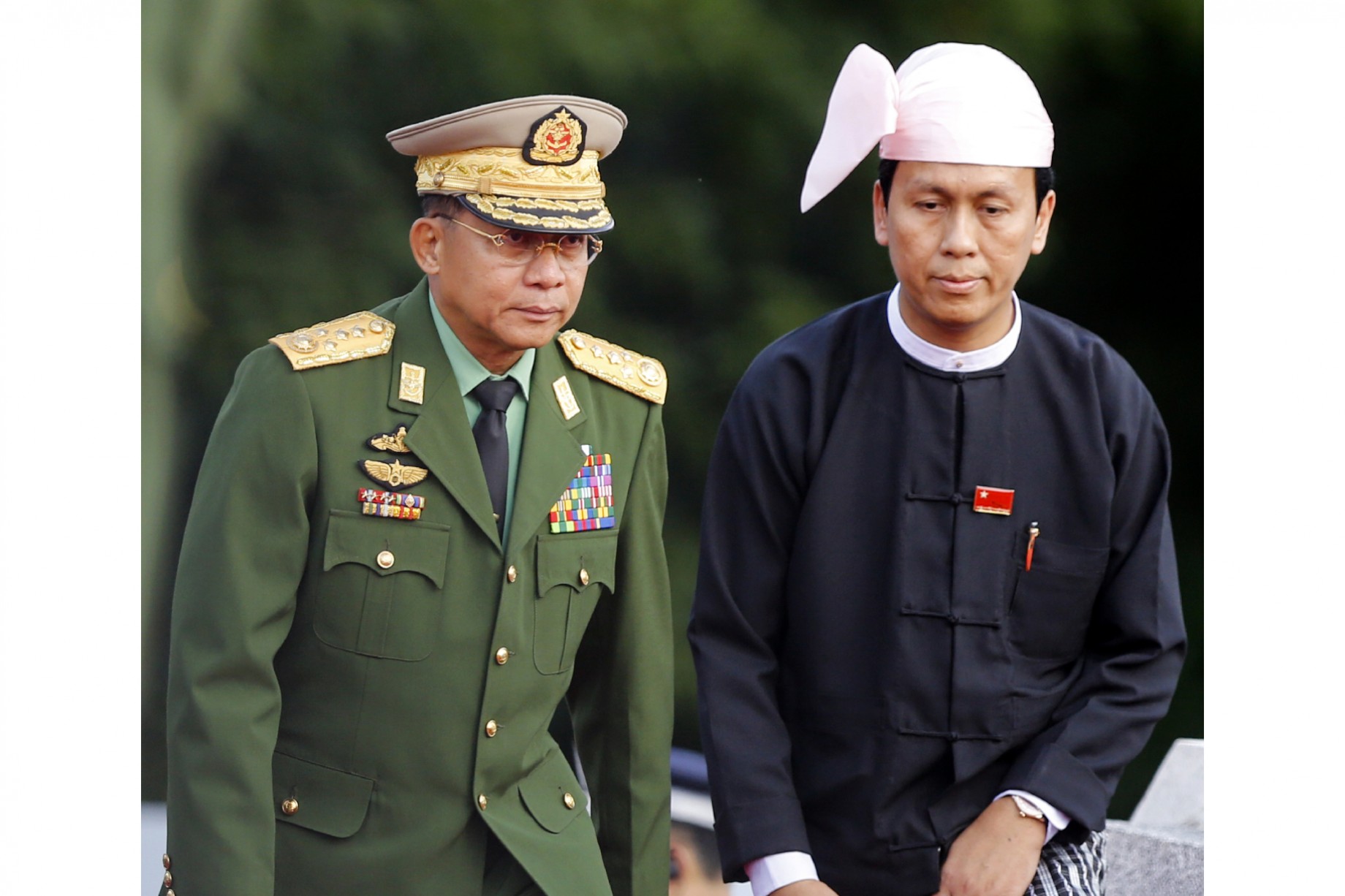
Wai Wai Than, Aung San Suu Kyi’s long-time housekeeper, has been called as a witness to challenge claims that the ousted state counsellor received massive bribes from Yangon Region’s former chief minister, Phyo Min Thein.
A special court set up inside the Naypyitaw Council compound was scheduled to hear Wai Wai Than’s testimony on Friday, but postponed it until a later date after the session ran out of time, a court source told Myanmar Now.
Myint San, the presiding judge, had planned to listen to testimony in three of four corruption cases against Suu Kyi, but was only able to go over two of the charges, the source said.
Most of Friday’s hearing was taken up with testimony by Myo Aung, the permanent secretary of the Naypyitaw City Development Committee, who testified on behalf of the prosecution in two cases related to Suu Kyi’s acquisition of land for an agricultural training school established by the Daw Khin Kyi Foundation, a charity named after Suu Kyi’s late mother.
The court source said the hearing lasted nearly five hours, from 10:30am to 3:30pm, with a half-hour break in the middle.
Wai Wai Than was called by Suu Kyi’s legal defence team in an effort to counter testimony given by Phyo Min Thein early last month claiming that he gave the deposed leader $600,000 in cash and 11.4kg of gold in exchange for business favours.
Suu Kyi has dismissed the former chief minister’s accusations as “absurd”.
It was unclear if Wai Wai Than, who was living with Suu Kyi when the military seized power on February 1, was detained that day along with her former employer and other leading members of Myanmar’s elected government.
Other details related to the case were also unavailable due to court restrictions placed on Suu Kyi’s legal team.
Last month, the court banned Ye Htut, an officer from the junta’s Anti-Corruption Commission who is also the plaintiff in the case, from reading prepared statements while testifying against Suu Kyi after her lawyers complained.
The 76-year-old leader is currently facing a total of 11 charges, including four for alleged corruption, each carrying a maximum sentence of 15 years in prison.
She has also been accused of incitement, breaking Covid-19 restrictions, and violating the colonial-era Official Secrets Act. She could spend decades in prison if convicted on all counts.


![Resistance fighters holding heavy weapons ammunition in central Myanmar. (Photo: Freedom Revolution Force [FRF])](https://myanmar-now.org/en/wp-content/uploads/sites/5/2024/04/438869056_443267851680128_1706386881626943924_n-390x220.jpeg)
